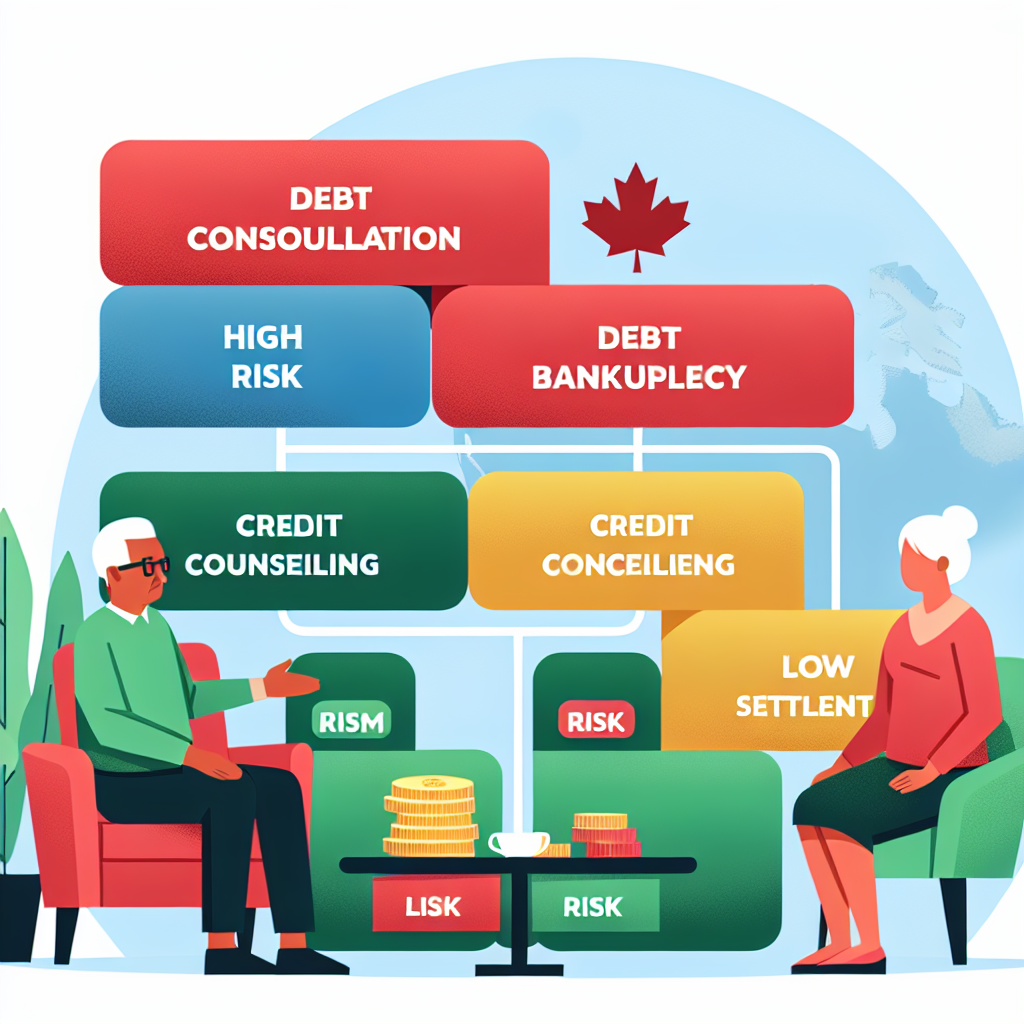As the cost of living continues to rise, many seniors in Canada find themselves grappling with financial challenges, particularly in managing debt. With fixed incomes and limited earning potential, seniors face unique obstacles when it comes to debt relief. This article explores the debt relief options available for Canadian seniors, examining both government programs and non-government solutions, and offers tips for managing debt to maintain financial well-being.
Understanding Debt Challenges for Canadian Seniors
For many Canadian seniors, retiring on a fixed income can make it difficult to manage existing debts, such as mortgages, credit card balances, and personal loans. With rising healthcare costs and unexpected expenses, it becomes crucial for seniors to find effective debt relief options. According to Statistics Canada, nearly one-third of Canadian seniors carry some form of debt, which can lead to financial stress and insecurity.
The challenges of managing debt in retirement are compounded by the fact that many seniors rely solely on government pensions for income. The Canadian Pension Plan (CPP) and Old Age Security (OAS) provide a basic income, but often fall short of covering all expenses. This financial gap can lead to reliance on credit, further exacerbating debt issues. Furthermore, declining health can impose additional financial burdens, as medical expenses may not be fully covered by provincial healthcare plans.
Understanding these challenges is essential for identifying suitable debt relief solutions. By recognizing the specific financial hurdles faced by seniors, both the government and private sector can create targeted strategies to alleviate the debt burdens of this vulnerable population.
Government Programs for Senior Debt Relief
The Canadian government offers several programs aimed at assisting seniors in managing their debt. One of the most prominent is the Guaranteed Income Supplement (GIS), which provides additional financial support to low-income seniors receiving OAS. Designed to alleviate poverty among seniors, the GIS can help reduce financial strain and prevent further debt accumulation. More information on eligibility and application processes is available through the Government of Canada’s OAS webpage.
Additionally, the Canada Revenue Agency (CRA) offers debt relief programs for seniors who owe taxes. Through the Taxpayer Relief Provisions, the CRA may cancel or waive penalties and interest to alleviate financial hardship. Seniors facing difficulty in paying their tax debts can apply for relief, allowing them to focus on managing their other financial obligations without the added pressure of mounting tax dues.
Provincial programs also play a role in offering debt relief solutions. For instance, the Ontario Drug Benefit program offers prescription drug assistance, reducing out-of-pocket medical expenses for seniors, thus freeing up resources that can be used for debt repayment. Exploring these programs and applying for all eligible aid can significantly alleviate the financial pressures faced by seniors.
Non-Government Debt Relief Solutions in Canada
Beyond government offerings, non-governmental organizations and financial institutions also provide debt relief options tailored to Canadian seniors. Non-profit credit counseling agencies can be invaluable resources, offering free or low-cost advice to seniors struggling with debt. These agencies assist seniors in creating manageable debt repayment plans and provide education on financial management to prevent future debt issues. Visit our guide on credit counseling services for further details on what to expect.
Debt consolidation loans are another option that seniors can consider. These loans combine multiple debts into a single monthly payment, often with a lower interest rate. This can simplify repayment and potentially reduce the total interest paid over time. However, seniors should carefully evaluate their financial situation and consult with a financial advisor before pursuing consolidation to ensure it aligns with their long-term financial goals.
For seniors who own their homes, reverse mortgages offer a unique way to access home equity without the need to sell. This option provides tax-free cash that can be used to pay off existing debts or cover ongoing expenses. While this solution can relieve immediate financial pressure, it’s important to understand the long-term implications, including the reduction of the estate’s value. Our reverse mortgage page offers in-depth insights into how this option works.
Tips for Managing Debt and Financial Well-being
Managing debt is essential for maintaining financial well-being in retirement. Seniors should start by creating a comprehensive budget that outlines all sources of income and expenses. Identifying areas where expenses can be reduced or eliminated is key to freeing up funds for debt repayment. Utilizing budgeting tools and resources can also help seniors stay on track. Check out our budgeting tips for seniors for practical advice.
Regularly reviewing financial statements and keeping track of all debts is crucial. By maintaining a clear picture of their financial status, seniors can prioritize debt repayment strategies. Additionally, setting up automatic payments can prevent missed payments, which often lead to additional fees and increased debt. Our article on financial management for seniors provides more strategies for staying organized and proactive.
Finally, seeking professional financial advice can provide seniors with personalized strategies for managing debt. Financial advisors can offer insights into effective debt repayment techniques and help seniors make informed decisions about their financial future. Whether dealing with a financial planner or a credit counselor, professional guidance can be a valuable asset in achieving financial stability during retirement.
Navigating debt relief can be a daunting task for Canadian seniors, but understanding the available options can lead to a more secure financial future. From government programs to non-government solutions, there are a variety of pathways to debt management that can provide relief and peace of mind. By adopting effective financial practices and seeking professional help when needed, seniors can manage their debts and focus on enjoying their retirement. For more information on senior financial planning, visit our senior financial planning guide.
Emergency debt help servicesHow to qualify for a consumer proposalAffordable debt repayment plansRelevant LinkRelevant LinkRelevant Link
